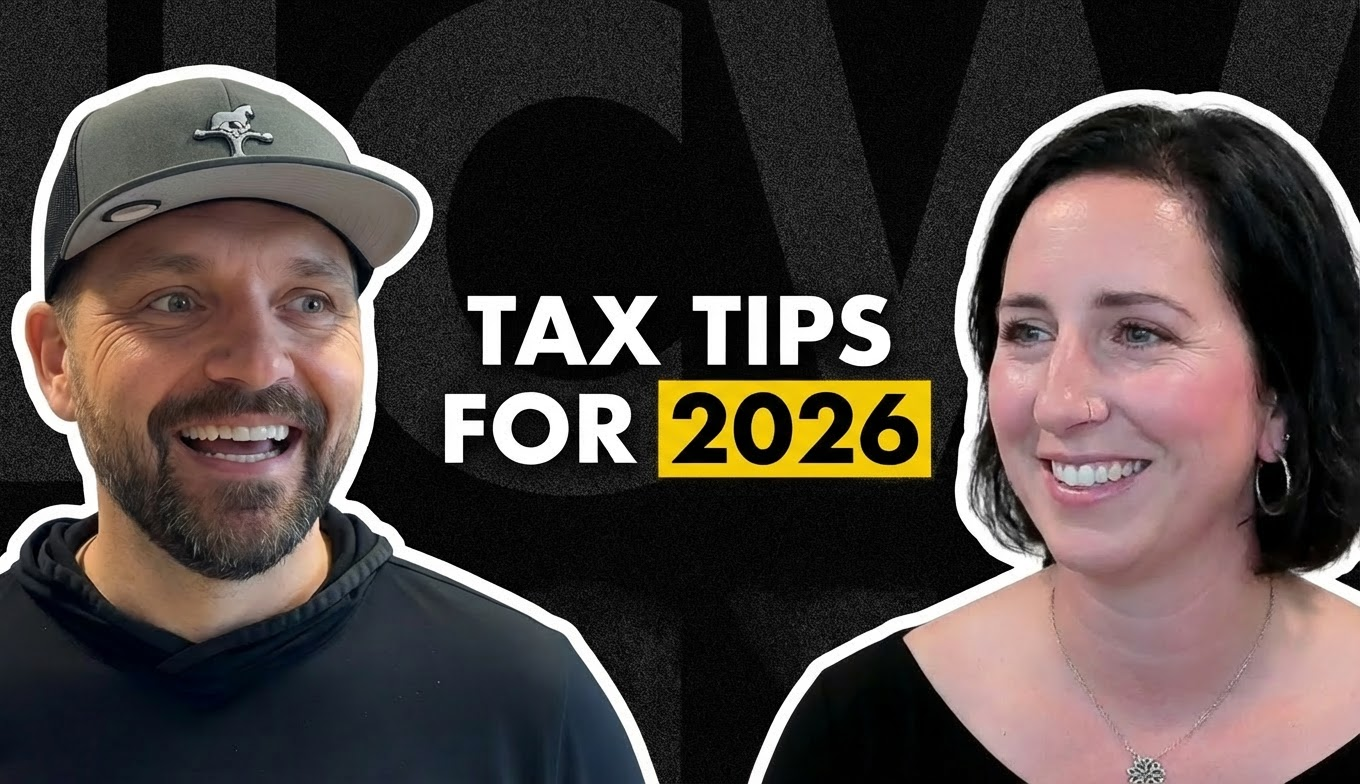Think about your long-term financial goals – do you have any? Unless you're one of the lucky few who have a trust fund or inheritance to fall back on, it's important to start planning for your future right now. This means sitting down and creating a budget, figuring out how much money you'll need to save each month, and setting realistic targets. But it's not just about the numbers – it's also important to be mindful of your surrounding environment and make sure you're taking into account any potential risks that could impact your finances down the line. So how do you go about all this financial planning? Keep reading to get a glimpse of our professional insight!
What is a Long-Term Investment?

The best way to decide which type of long-term investment is right for you is to speak with a financial advisor. They can help you assess your risk tolerance and goals, and then recommend an investment strategy that aligns with your needs. In addition, we can help design a blueprint specific to your specific needs regarding how to grow and protect your wealth over the long term.
Creating a Budget for Long-Term Investments
Why are budgets useful in the planning process?
Budgets help individuals and households to make informed decisions about their finances, track spending and saving patterns, set financial goals, and monitor progress towards those goals.
Best practices for creating a budget include:
- Knowing your income and expenses
- Setting realistic financial goals
- Tracking your progress
- Make adjustments as needed
Creating a budget is especially important when preparing for long-term investments, such as retirement. A budget can help you to set aside the necessary funds and track your progress over time.
Without a budget, it may be difficult to reach your financial goals. Therefore, a budget is an essential tool for anyone looking to make sound investments for the future.
Investing in Stocks and Mutual Funds
For many people, the stock market is a mysterious entity. It's often assumed that only rich people can invest and that it's too risky for regular folks. However, anyone can invest in stocks and mutual funds, and with a little bit of knowledge and preparation, it can be a relatively safe way to grow your money.
There are two main types of investments: stocks and mutual funds. Stocks represent ownership in a company, and mutual funds are a collection of stocks and other securities. When you invest in stocks or mutual funds, you're essentially betting that the company will do well in the future. If the company does well, the value of the stock will go up, and you can make a profit by selling your shares. If the company doesn't do well, the value of the stock will go down, and you may lose money.
There are also different types of risks associated with different types of investments. For example, stocks are generally considered to be riskier than bonds, but they also have the potential to provide higher returns. Mutual funds can offer diversification and professional management, which can help to reduce risk.
When considering investing in stocks or mutual funds, there are a few questions to consider while deciding what is best for your situation:
- What are you hoping to achieve?
- Are you looking for short-term gains or long-term growth?
These questions can help guide you in the right direction for designing a strategic plan fit for your needs.
Planning for Retirement
Anyone who's ever watched a commercial knows that planning for retirement is important. What those same commercials don't tell you is that planning for retirement while keeping in mind the goals that you want to achieve in retirement is even more important. After all, what's the point of saving for retirement if you're not going to be able to enjoy it? The good news is that with a little careful planning, you can have the retirement of your dreams.
One of the most important things to keep in mind is that retirement is a long-term investment. That means that there are certain advantages to starting early. For example, compound interest can help your savings to grow over time. In addition, the sooner you start saving, the less you'll need to save each month to reach your goal.
Of course, saving isn't the only important factor in planning for retirement. You'll also need to think about how you'll generate income in retirement. For many people, social security will provide a basic level of income, but it's often not enough to live comfortably. That's why it's important to consider other sources of income, such as a pension or an annuity.
Finally, it's important to think about how you'll spend your time in retirement. Do you want to travel? Spend time with family and friends? Pursue a hobby? Whatever your goals may be, there are steps you can take now to make sure that you can achieve them.
Estate Planning and Wills
For many people, the idea of creating a will or an estate plan is overwhelming. After all, it can be difficult to think about our mortality, let alone make concrete plans for what will happen to our belongings after we die. However, estate planning is a crucial part of ensuring that our loved ones are taken care of in the event of our death. Without a plan in place, our assets may be distributed in a way that does not reflect our wishes. Additionally, estate planning can help to minimize the taxes and fees associated with inheriting property.
Financial planning is the process of setting goals, evaluating your current financial situation, and taking action to achieve your desired future state. It involves identifying your sources of income, estimating your expenses, and creating a plan to save and invest for the future. While estate planning and wills are both important components of financial planning, they serve different purposes. Estate planning is the process of making sure your assets are distributed according to your wishes after you die. This includes creating a will, naming beneficiaries, and appointing an executor. A will is a legal document that outlines how you want your assets to be distributed after you die. While everyone should have a will, estate planning is particularly important if you have significant assets or if you want to control who gets what after you're gone. If you don't have a will, your assets will be distributed according to your state's laws of intestate succession. This means that your spouse or next of kin will inherit your property, which may not be what you want. Creating a will gives you the peace of mind of knowing that your loved ones will be taken care of according to your wishes. It can also help to avoid family conflict and legal disputes down the road. To get started with estate planning, consult with an attorney or financial advisor who can help you understand the laws in your state and create a plan that meets your needs.
Several different elements can be included in an estate plan. A will is perhaps the most well-known component, but trusts, powers of attorney, and healthcare directives are also important considerations. The best way to create an effective estate plan is to work with a qualified attorney who can help you understand your options and make choices that are right for you and your family.
Tips for Staying Disciplined during Long-Term Investing
Anyone who has ever tried to diet or save money knows that long-term Discipline can be difficult to maintain. The same is true when it comes to investing. It can be easy to get caught up in the excitement of a rising market, or to panic when prices start to fall. However, successful long-term investors know that it is important to stay disciplined in both good times and bad. Here are a few tips for staying disciplined during long-term investing:
- Set realistic goals and expectations. It is important to have a clear idea of what you are trying to achieve with your investment portfolio. Having specific, achievable goals will help you stay focused and avoid making impulsive decisions.
- Stay diversified. When markets are volatile, it can be tempting to sell off all of your stocks and invest in safe, low-yielding assets. However, this is often a mistake. A diversified portfolio will help protect you from losses in any one sector and will offer the potential for higher returns over the long term.
- Have a plan and stick to it. Once you have developed an investment strategy, stick to it! Many investors make the mistake of chasing hot stocks or selling everything during a market downturn. discipline and patience are key when it comes to successful long-term investing.
Although it may seem difficult to set money aside for the future, especially when times are tough, it is important to remember that a little bit of planning goes a long way. By investing in stocks and mutual funds, you can rest assured knowing that your money is working for you even when the economy takes a turn for the worse. Additionally, by preparing for retirement now, you can ensure that you have enough saved up to live comfortably once you stop working. Have you started planning for your financial future? If not, there’s no time like the present! Check out our blog post on investing during troubled times to get started.
This page is a publication of Fiat Wealth Management, LLC. The firm is registered as an investment adviser and only conducts business in states where it is properly registered/notice filed or is excluded from registration requirements. Registration is not an endorsement of the firm by securities regulators and does not mean the adviser has achieved a specific level of skill or ability.
The information presented is believed to be current. It should not be viewed as personalized investment advice. All expressions of opinion reflect the judgment of the authors on the date of publication and may change in response to market conditions. You should consult with a professional advisor before implementing any strategies discussed. Content should not be viewed as an offer to buy or sell any of the securities mentioned or as legal or tax advice. You should always consult an attorney or tax professional regarding your specific legal or tax situation.













.png)